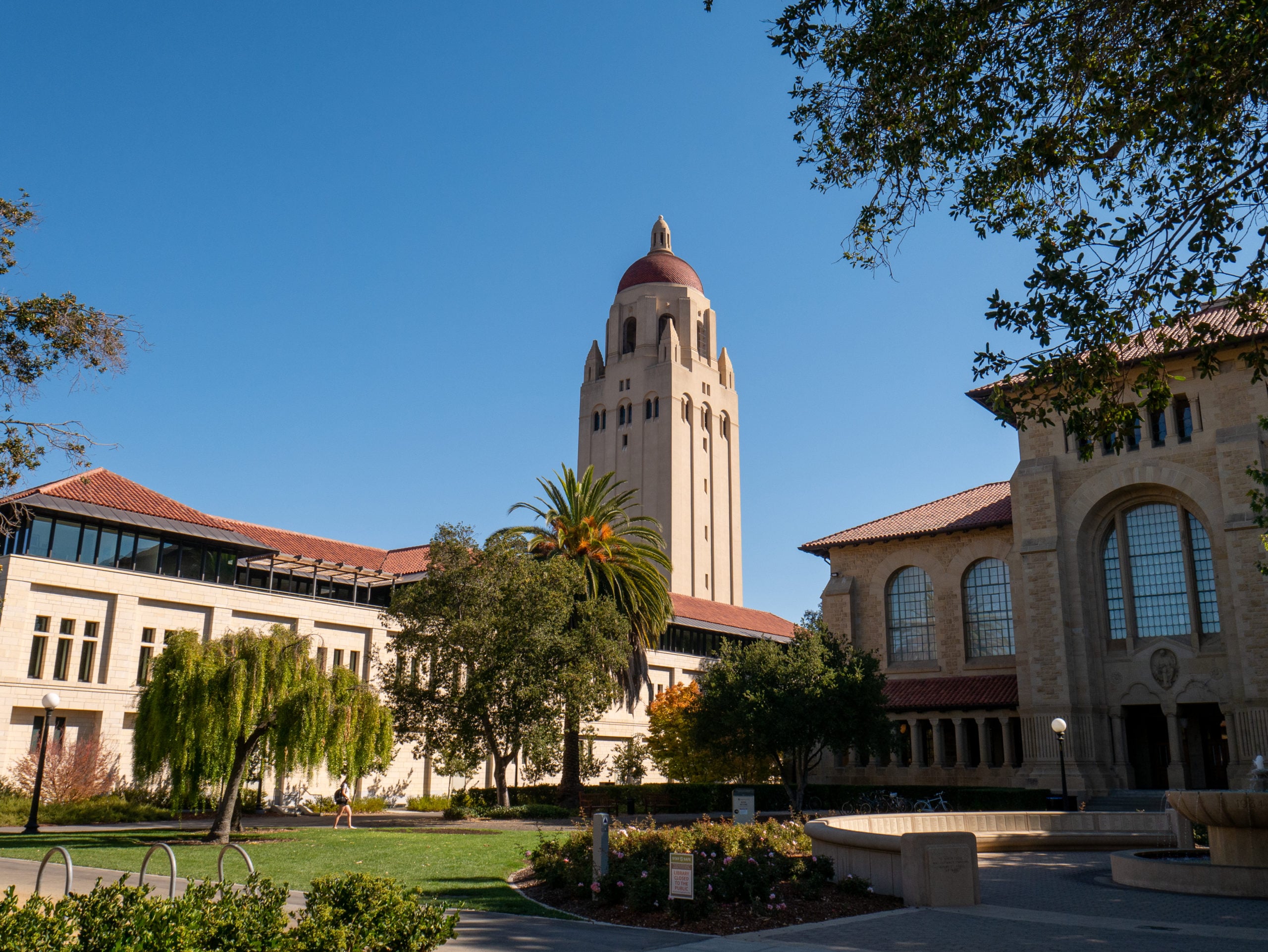The Graduate School of Business (GSB) will host its Academic Freedom Conference from Nov. 4-5. The conference, which has stirred controversy over its speaker lineup and initial decision to be closed to the media, “aims to identify ways to restore academic freedom, open inquiry and freedom of speech and expression on campus and in the larger culture,” according to its website.
The conference drew criticism when Stephanie M. Lee, a reporter at The Chronicle of Higher Education, wrote on Twitter on Oct. 19 that her request to attend the conference was denied. The conference organizers decided later to live stream the conference.
An open letter criticizing the conference, titled “A Closed Conference on Academic Freedom is a Contradiction,” has garnered more than 50 signatures — most of them Stanford professors — as of Nov. 2.
The letter raised concerns that the conference will give “shelter and immunity” to racism. It cites conference speaker Amy Wax, who has previously ignited controversy over her racist remarks about Black and Asian people. Wax’s 2017 claims that she had rarely seen Black students at the University of Pennsylvania Law School, where she is a professor, graduate in the top half of their class were later refuted by Penn Law School Dean Theodore Ruger.
“When [Wax’s] zeal for making a racist point takes precedence over her obligation to get the facts right, or provide any proof whatsoever for her statements, we have a profound problem, one that no bogus appeal to academic freedom can or should cover up,” the letter stated.
The rest of the speaker lineup has also raised eyebrows.
Among the speakers is Niall Ferguson, a Hoover Senior Fellow who resigned from his leadership position in a campus free speech program after it was revealed that he had urged a group of conservative students to conduct “opposition research” on a progressive student activist. Scott Atlas, a Hoover Senior Fellow and former Trump coronavirus advisor who threatened to sue the more than 100 Stanford physicians and researchers who signed an open letter condemning his views on COVID-19, is also part of the lineup.
John H. Cochrane, a Hoover Senior Fellow, conference speaker and member of the organizing committee, wrote in an email to The Daily that the organizing committee invited a wide range of people, including those now critical of the conference — many of whom, according to Cochrane, ignored or declined the invitation. Other Stanford affiliates on the organizing committee did not respond to requests for comment.
French and comparative literature professor Joshua Landy said he was surprised to be invited to be on a panel about biomedical science as a literature professor. He declined and recommended that the organizers attempt to recruit medical experts outside of Stanford if necessary.
“When it comes to matters of public concern, like medical issues, academic responsibility requires us to be careful about what we say and to privilege the research of experts,” Landy said.
The open letter also said the invitation-only nature of the conference is contradictory to academic freedom. According to the letter, academic freedom is intended to encourage discussion, but the conference organizers have created a “hermetically-sealed event.”
Cochrane wrote that the conference is invitation-only because of limited space and budget for food.
Reactions to the conference organizers’ decision to live stream the conference were mixed.
Landy said he thinks it’s “excellent” that the conference is being live streamed. “I just find it a little sad that it excludes outside voices,” he said.
“I think it would have been even better if they had decided to open it up,” Landy said.
Cochrane, however, wrote that having hundreds of people does not make a “very good forum for open exchange.”
Comparative literature professor David Palumbo-Liu said the decision to live stream is “not sufficient.” He added that live streaming wouldn’t give people a chance to challenge the speakers.
Some students also raised criticisms that the conference doesn’t uphold the spirit of academic freedom.
Mallory Harris, a biology Ph.D. student, said true academic freedom challenges power imbalances, yet the speakers include people in power who have used intimidation. Taimur Ahmad M.A. ’23, an international policy master’s student, said events like this conference make it more difficult for people to find common ground.
Landy also said that he worries the event may be a “missed opportunity for bipartisanship,” citing the Florida law signed by Gov. Ron DeSantis earlier this year restricting the discussion of race in schools and businesses. “Academic freedom isn’t a left or right issue,” he said.
When contacted for comment, GSB spokesperson Amelia Hansen shared a statement from GSB Dean Jonathan Levin, stating that faculty and students are granted freedom in support of creating a “collision of ideas.”
“However, not every discussion, colloquium and conference will represent the full range of views, and some may include controversial views, precisely because of this freedom,” Levin wrote. Levin added that the though the GSB is supporting the conference, the conference is organized by two faculty members.
In response to criticism, Cochrane wrote that people who do not like how the Academic Freedom Conference is organized can organize their own conferences. “They do not have to silence us in order to have their voices heard,” he wrote.
Engineering and oceans professor Stephen Monismith said that he thinks the University should sponsor an open conference on academic freedom, which he said he and a few others had proposed but “hadn’t gotten very far.” Palumbo-Liu also mentioned past efforts to organize an academic responsibility event that did not receive support. The University did not respond to a question about past efforts to organize events.
“You can’t have a ‘collision of ideas’ if you’ve closed the conference [and] only admitted it to a passive audience,” Palumbo-Liu said. “Then you’re basically doing [an] almost parody of academic freedom.”
This article has been updated to include additional comment from Levin.
